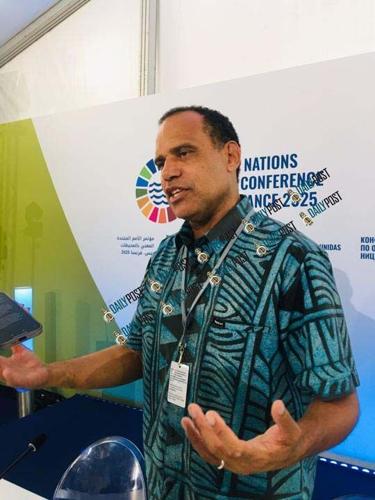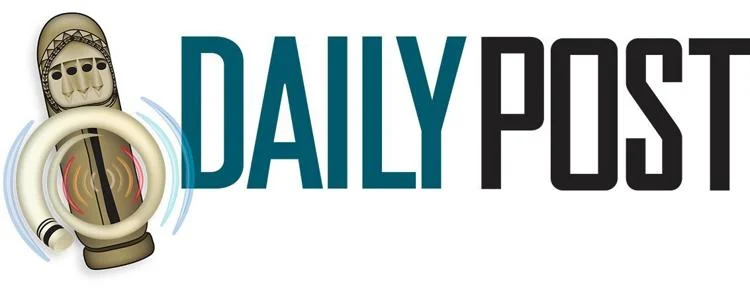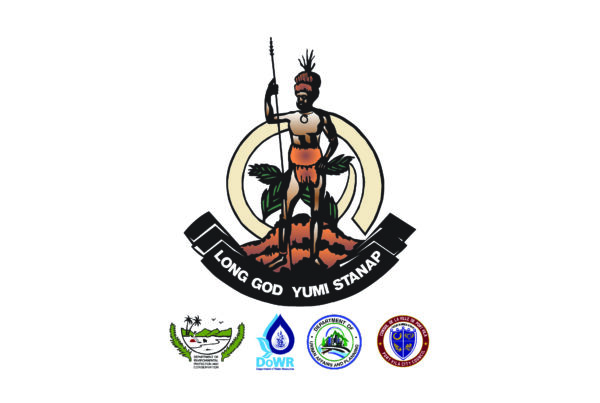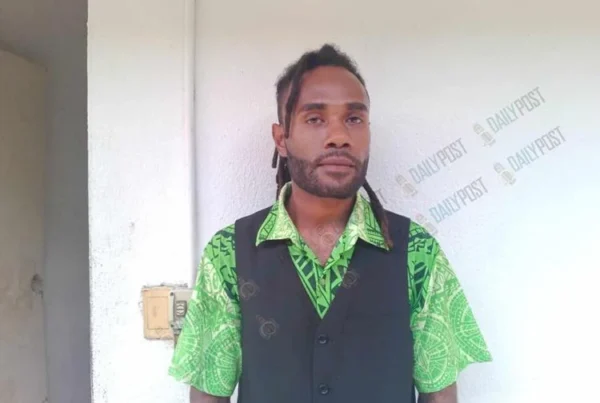


By Ezra Toara
Minister of Climate Change, Adaptation, and Environment Ralph Regenvanu has acknowledged that the Vanuatu Government is moving too slowly in addressing the ongoing pollution crisis in Port Vila’s Erakor Lagoon, despite having funds already secured to tackle the problem.
In an exclusive interview with the Vanuatu Daily Post, Minister Regenvanu admitted that while financing is in place, the government has been slow to put these resources to effective use—particularly concerning the ageing wastewater system at Vila Central Hospital (VCH), identified as the lagoon’s main source of pollution.
“We cannot tell private companies, hotels, or households to fix their wastewater problems if the government has not yet solved the biggest problem, which is at our main hospital,” Regenvanu said.
He revealed that just last month, the government finally awarded a tender to a company that will redesign the hospital’s wastewater system—a long-awaited step toward solving the pollution that has affected the Erakor Lagoon and surrounding waters. Work is set to begin soon, with funding already secured.
In the meantime, Vanuatu now has a National Wastewater Standard, which authorities are preparing to enforce. Environmental inspectors recently completed a city-wide inspection of waste systems, the findings of which contributed to the newly released report. The government is now preparing to move to the next phase: enforcement of these standards to prevent further pollution.
Regenvanu also called for increased government investment in the Department of Environment (DoE) and the Department of Water Resources (DoWR) to ensure they have the capacity to carry out their regulatory duties.
In a positive development, the government is collaborating with the communities of Erakor and Ifira to establish a marine protection zone stretching from Fatumauru Bay to Erakor Lagoon and Nambatu Lagoon. The government will help these communities apply for funding in August to support this initiative.
“This is a big challenge,” Regenvanu said, “but it is the government’s clear intention to fix this problem once and for all.”
He appealed to all residents of Port Vila—including businesses, hotels, and households—to join in solving the city’s water pollution crisis, noting that the problem is now clearly identified in the official report and that everyone has a role to play in the solution.
The recently published Port Vila Wastewater Treatment Assessment Report (June 2025), prepared by the National Wastewater Task Force, outlines ongoing water pollution challenges in the capital’s marine areas. Shared widely during Ocean Week, the report aims to raise public awareness about the importance of reducing pollution as Port Vila works toward becoming a “clean water city.”
“We cannot keep blaming others. The government itself must act first to fix the hospital system before expecting businesses and households to comply,” Regenvanu concluded.




